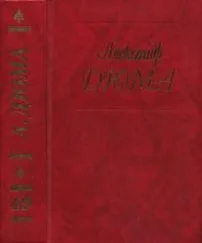"What! the king sent you to learn—"
"Of course; but don't let us speak of that any more."
"Not speak of it!" said Porthos; "on the contrary, we will speak of it; and so the king knew that we were fortifying Belle–Isle?"
"Of course; does not the king know everything?"
"But he did not know who was fortifying it?"
"No, he only suspected, from what he had been told of the nature of the works, that it was some celebrated soldier or another."
"The devil!" said Porthos, "if I had only known that!"
"You would not have run away from Vannes as you did, perhaps?"
"No; what did you say when you couldn't find me?"
"My dear fellow, I reflected."
"Ah, indeed; you reflect, do you? Well, and what did that reflection lead to?"
"It led me to guess the whole truth."
"Come, then, tell me what did you guess after all?" said Porthos, settling himself into an armchair, and assuming the airs of a sphinx.
"I guessed, in the first place, that you were fortifying Belle–Isle."
"There was no great difficulty in that, for you saw me at work."
"Wait a minute; I also guessed something else,—that you were fortifying Belle–Isle by M. Fouquet's orders."
"That's true."
"But even that is not all. Whenever I feel myself in trim for guessing, I do not stop on my road; and so I guessed that M. Fouquet wished to preserve the most absolute secrecy respecting these fortifications."
"I believe that was his intention, in fact," said Porthos.
"Yes, but do you know why he wished to keep it secret?"
"In order it should not become known, perhaps," said Porthos.
"That was his principal reason. But his wish was subservient to a bit of generosity—"
"In fact," said Porthos, "I have heard it said that M. Fouquet was a very generous man."
"To a bit of generosity he wished to exhibit towards the king."
"Oh, oh!"
"You seem surprised at that?"
"Yes."
"And you didn't guess?"
"No."
"Well, I know it, then."
"You are a wizard."
"Not at all, I assure you."
"How do you know it, then?"
"By a very simple means. I heard M. Fouquet himself say so to the king."
"Say what to the king?"
"That he fortified Belle–Isle on his majesty's account, and that he had made him a present of Belle Isle."
"And you heard M. Fouquet say that to the king?"
"In those very words. He even added: 'Belle–Isle has been fortified by an engineer, one of my friends, a man of a great deal of merit, whom I shall ask your majesty's permission to present to you.'
"'What is his name?' said the king.
"'The Baron du Vallon,' M. Fouquet replied.
"'Very well,' returned his majesty, 'you will present him to me.'"
"The king said that?"
"Upon the word of a D'Artagnan!"
"Oh, oh!" said Porthos. "Why have I not been presented, then?"
"Have they not spoken to you about this presentation?"
"Yes, certainly; but I am always kept waiting for it."
"Be easy, it will be sure to come."
"Humph! humph!" grumbled Porthos, which D'Artagnan pretended not to hear; and, changing the conversation, he said, "You seem to be living in a very solitary place here, my dear fellow?"
"I always preferred retirement. I am of a melancholy disposition," replied Porthos, with a sigh.
"Really, that is odd," said D'Artagnan, "I never remarked that before."
"It is only since I have taken to reading," said Porthos, with a thoughtful air.
"But the labors of the mind have not affected the health of the body, I trust?"
"Not in the slightest degree."
"Your strength is as great as ever?"
"Too great, my friend, too great."
"Ah! I had heard that, for a short time after your arrival—"
"That I could hardly move a limb, I suppose?"
"How was it?" said D'Artagnan, smiling, "and why was it you could not move?"
Porthos, perceiving that he had made a mistake, wished to correct it. "Yes, I came from Belle–Isle upon very hard horses," he said, "and that fatigued me."
"I am no longer astonished, then, since I, who followed you, found seven or eight lying dead on the road."
"I am very heavy, you know," said Porthos.
"So that you were bruised all over."
"My marrow melted, and that made me very ill."
"Poor Porthos! But how did Aramis act towards you under those circumstances?"
"Very well, indeed. He had me attended to by M. Fouquet's own doctor. But just imagine, at the end of a week I could not breathe any longer."
"What do you mean?"
"The room was too small; I had absorbed every atom of air."
"Indeed?"
"I was told so, at least; and so I was removed into another apartment."
"Where you were able to breathe, I hope and trust?"
"Yes, more freely; but no exercise—nothing to do. The doctor pretended that I was not to stir; I, on the contrary, felt that I was stronger than ever; that was the cause of a very serious accident."
"What accident?"
"Fancy, my dear fellow, that I revolted against the directions of that ass of a doctor, and I resolved to go out, whether it suited him or not: and, consequently, I told the valet who waited on me to bring me my clothes."
"You were quite naked, then?"
"Oh, no! on the contrary, I had a magnificent dressing–gown to wear. The lackey obeyed; I dressed myself in my own clothes, which had become too large for me; but a strange circumstance had happened,—my feet had become too large."
"Yes, I quite understand."
"And my boots too small."
"You mean your feet were still swollen?"
"Exactly; you have hit it."
" Pardieu! And is that the accident you were going to tell me about?"
"Oh, yes; I did not make the same reflection you have done. I said to myself: 'Since my feet have entered my boots ten times, there is no reason why they should not go in the eleventh.'"
"Allow me to tell you, my dear Porthos, that on this occasion you failed in your logic."
"In short, then, they placed me opposite to a part of the room which was partitioned; I tried to get my boot on; I pulled it with my hands, I pushed with all the strength of the muscles of my leg, making the most unheard–of efforts, when suddenly the two tags of my boot remained in my hands, and my foot struck out like a ballista."
"How learned you are in fortification, dear Porthos."
"My foot darted out like a ballista, and came against the partition, which it broke in; I really thought that, like Samson, I had demolished the temple. And the number of pictures, the quantity of china, vases of flowers, carpets, and window–panes that fell down were really wonderful."
"Indeed!"
"Without reckoning that on the other side of the partition was a small table laden with porcelain—"
"Which you knocked over?"
"Which I dashed to the other side of the room," said Porthos, laughing.
"Upon my word, it is, as you say, astonishing," replied D'Artagnan, beginning to laugh also; whereupon Porthos laughed louder than ever.
"I broke," said Porthos, in a voice half–choked from his increasing mirth, "more than three thousand francs worth of china—ha, ha, ha!"
"Good!" said D'Artagnan.
"I smashed more than four thousand francs worth of glass!—ho, ho, ho!"
"Excellent."
"Without counting a luster, which fell on my head and was broken into a thousand pieces—ha, ha, ha!"
"Upon your head?" said D'Artagnan, holding his sides.
"On top."
"But your head was broken, I suppose?"
"No, since I tell you, on the contrary, my dear fellow, that it was the luster which was broken, like glass, which, in point of fact, it was."
"Ah! the luster was glass, you say."
"Venetian glass! a perfect curiosity, quite matchless, indeed, and weighed two hundred pounds."
Читать дальше












